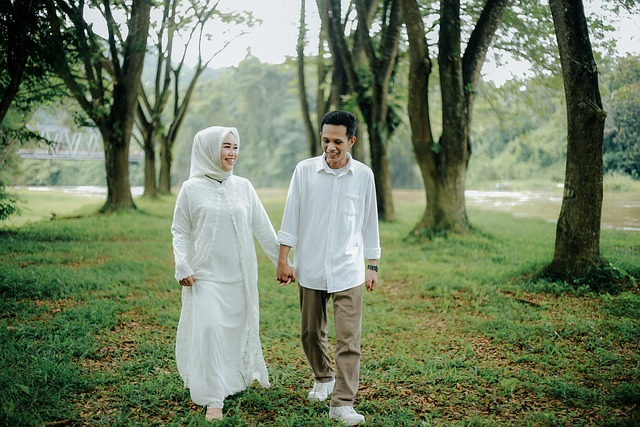
Category: Couples Therapy Gilbert
Couples Therapy Gilbert: A Comprehensive Exploration
Introduction
Welcome to an in-depth exploration of the dynamic field of Couples Therapy Gilbert, a specialized approach that has garnered significant attention for its transformative potential in addressing relationship challenges. This article aims to guide readers through the intricacies of this therapeutic modality, highlighting its origins, global reach, and profound impact on couples seeking healthier, happier unions. By delving into various facets, from historical context to future prospects, we seek to empower individuals and professionals alike to navigate the complexities of modern relationships effectively.
Understanding Couples Therapy Gilbert: Unveiling the Core
Couples Therapy Gilbert, often referred as CTG, is a therapeutic intervention designed specifically for married or committed couples facing communication issues, conflict resolution problems, or a decline in intimacy and connection. Founded on the principles of systemic therapy and positive psychology, this approach aims to strengthen the bond between partners by fostering better understanding, empathy, and effective coping strategies.
Core Components:
- Individual Assessment: Each partner undergoes individual counseling sessions to explore personal histories, beliefs, and emotional patterns that may influence their relationship.
- Couple Sessions: These are the cornerstone of CTG, where therapists facilitate open dialogue, help partners improve communication, and address specific issues through collaborative problem-solving.
- Education and Skills Training: Couples learn valuable tools for conflict management, emotional regulation, and enhancing intimacy, which they practice in real-life scenarios.
- Systemic Perspective: CTG views the couple as a system, examining dynamics, roles, and interdependencies to identify patterns that may hinder connection and growth.
Historical Context:
The roots of Couples Therapy Gilbert trace back to the 1970s when psychologists and therapists began recognizing the unique challenges faced by couples in navigating the complexities of modern relationships. Early approaches focused on behavioral modifications and communication skills training, laying the groundwork for the more comprehensive models that have evolved today. Over time, CTG has integrated insights from various therapeutic schools, including cognitive-behavioral therapy (CBT), mindfulness-based practices, and attachment theory, resulting in a highly effective, evidence-based method.
Global Impact and Trends: A World of Connection
Couples Therapy Gilbert has transcended geographical boundaries, leaving an indelible mark on diverse cultures and communities worldwide. Its global impact is evident in several key trends shaping its trajectory:
International Adoption:
CTG has gained popularity across numerous countries, with varying degrees of adaptation to local cultural contexts. For instance, therapists in Asia have incorporated elements of traditional relationship teachings while adopting the core CTG framework, while European practitioners emphasize the therapeutic alliance and empowerment within the couple.
Cultural Sensitivity and Adaptation:
The therapy’s success hinges on cultural sensitivity, as therapists adapt their approaches to respect diverse beliefs and values. This includes addressing cultural norms related to communication styles, gender roles, and expressions of intimacy, ensuring that CTG remains relevant and effective across various societies.
Rising Demand in Urban Centers:
Global cities, known for their bustling lifestyles and diverse populations, often witness a higher demand for CTG. The pressures of modern urban living, including long work hours, cultural shifts, and rapid life changes, contribute to relationship stress, making this therapeutic approach increasingly relevant.
Economic Considerations: Market Dynamics and Impact
The economic landscape surrounding Couples Therapy Gilbert is dynamic and multifaceted, reflecting its growing importance in the wellness sector.
Market Size and Growth:
Global market research indicates a steady rise in the demand for couple therapy, with CTG as a prominent player. This growth is attributed to changing societal attitudes towards mental health, increased awareness of relationship issues, and rising divorce rates in many countries. According to a report by Research and Markets, the global couple therapy market is projected to reach USD 12.5 billion by 2027, highlighting its significant economic impact.
Investment Patterns:
The rise in CTG’s popularity has attracted substantial investment from both public and private entities. Governments worldwide are allocating funds for mental health services, including couple therapy, recognizing its role in preventing relationship breakdowns and promoting overall well-being. Private investors, too, are showing interest, fueling the expansion of specialized clinics and online platforms offering CTG services.
Economic Benefits:
Beyond the direct financial transactions, CTG contributes to economic systems indirectly. Successful therapy outcomes can lead to improved job satisfaction, reduced stress, and enhanced productivity among participants, potentially lowering healthcare costs associated with relationship-related issues in the long term. Furthermore, the growing popularity of CTG has sparked a wave of entrepreneurial ventures, creating new job opportunities in therapy practices, research, and education.
Technological Advancements: Digital Tools for Connection
Technology has played a pivotal role in transforming the delivery of Couples Therapy Gilbert, opening up new avenues for accessibility, convenience, and innovation.
Online Therapy Platforms:
The rise of telemedicine has made CTG more accessible, with many couples opting for online therapy sessions. Platforms like BetterHelp, Amwell, and Talkspace have integrated video conferencing capabilities, enabling therapists to work with clients from remote areas or those with busy schedules. This shift towards digital therapy has expanded the reach of CTG, reaching individuals who may not have access to local in-person services.
Mobile Apps and Self-Help Tools:
A plethora of mobile applications designed for couples is now available, offering guided exercises, communication tools, and resources for emotional well-being. These apps often complement traditional CTG sessions, providing clients with practical techniques to apply between appointments. Examples include “Couples Check-In,” “Relate,” and “Happy Couples Club,” each offering unique features to enhance connection and understanding.
Virtual Reality (VR) Therapy:
VR technology is emerging as a potential game-changer in CTG, creating immersive experiences that can help couples confront and resolve issues in safe, controlled virtual environments. VR sessions can simulate real-life scenarios, enabling partners to practice new communication skills and work through conflicts without the pressure of face-to-face interactions.
Policy and Regulation: Navigating Legal Landscapes
The legal framework surrounding Couples Therapy Gilbert varies across jurisdictions, reflecting diverse cultural and societal norms. Understanding these policies is crucial for practitioners and clients alike to ensure ethical practices and access to quality services.
Licensing and Certification:
Many countries require therapists offering CTG to be licensed or certified by regulatory bodies. These regulations set standards for education, training, and practice, ensuring that therapists possess the necessary skills and knowledge. For instance, in the United States, marriage and family therapists (MFTs) must obtain a master’s degree and pass a national exam to become licensed.
Data Privacy and Confidentiality:
Given the sensitive nature of couple therapy, data privacy and confidentiality are paramount. Laws like the Health Insurance Portability and Accountability Act (HIPAA) in the US protect client information, ensuring therapists maintain secure records and obtain informed consent for any data sharing. Similar regulations exist in other countries, such as the General Data Protection Regulation (GDPR) in Europe, which sets guidelines for handling personal data.
Cultural and Religious Sensitivity:
Policymakers and regulators must also address cultural and religious considerations. Some communities may have unique views on marriage and relationships, influencing how therapy is perceived and delivered. Therapists practicing CTG must be sensitive to these differences and adapt their approaches accordingly, ensuring that services remain accessible and culturally appropriate.
Challenges and Criticisms: Overcoming Barriers
Despite its proven benefits, Couples Therapy Gilbert faces several challenges and criticisms that require thoughtful strategies for resolution.
Stigma and Perception:
One of the primary obstacles is the stigma associated with seeking couple therapy. Many individuals and couples still view it as a sign of weakness or failure in their relationship, hindering access to much-needed support. Overcoming this stigma requires ongoing public education campaigns, celebrity endorsements, and prominent figures sharing their positive therapy experiences.
Lack of Accessibility:
Accessibility remains a concern, especially in rural areas or low-income communities where limited resources and a shortage of trained therapists can make CTG less available. Expanding access could involve investing in training programs to increase the number of qualified professionals and implementing teletherapy services to reach remote populations.
Cost and Insurance Coverage:
The cost of couple therapy, including CTG, can be a significant barrier for many. While some insurance providers offer coverage for mental health services, including relationship counseling, out-of-pocket expenses remain high for some couples. Addressing this challenge may require policy interventions to negotiate rates with therapists and expand insurance benefits for CTG.
Cultural Adaptation:
As mentioned earlier, adapting CTG to diverse cultural contexts is essential but challenging. Therapists must be adept at navigating cultural differences in communication styles, family dynamics, and gender roles, ensuring that the therapy remains effective across cultures while respecting local traditions.
Case Studies: Success Stories and Lessons Learned
Real-life examples of Couples Therapy Gilbert in action offer valuable insights into its effectiveness and provide a foundation for continuous improvement.
Case Study 1: Overcoming Communication Barriers:
Sarah and Michael, both high-achieving professionals, had been married for five years but found themselves growing apart due to busy schedules and a lack of open communication. They sought CTG to improve their relationship. Through individual sessions, they explored their personal communication styles and learned techniques to share their needs effectively. In couple sessions, they practiced active listening and resolved long-standing conflicts, leading to improved connection and increased intimacy.
Key Takeaways:
- Open dialogue is crucial for resolving relationship issues.
- Learning new communication skills can transform interactions.
- CTG provides a safe space to address and resolve conflicts.
Case Study 2: Healing from Infidelity:
Jennifer and David’s marriage was rocked by David’s extramarital affair, leaving Jennifer feeling betrayed and hurt. They decided to try CTG as a way to rebuild trust and restore their relationship. The therapy process involved individual reflection, forgiveness exercises, and couple sessions focused on rebuilding intimacy and strengthening their bond. Over time, they experienced healing and a renewed sense of commitment to one another.
Lessons Learned:
- Infidelity can be a complex issue, requiring specialized approaches.
- CTG facilitates self-reflection and personal growth, leading to profound changes.
- Rebuilding trust takes time and dedicated effort from both partners.
Future Prospects: Emerging Trends and Strategic Considerations
As Couples Therapy Gilbert continues to evolve, several emerging trends and strategic directions shape its future trajectory.
Integration of AI and Data Analytics:
Artificial Intelligence (AI) has the potential to revolutionize CTG by providing personalized treatment plans based on data analytics. AI-driven platforms can analyze client information, including communication patterns, conflict resolution styles, and emotional responses, to tailor interventions and predict outcomes. This technology could enhance therapy efficiency and improve access to personalized care.
Cultural Diversity and Training:
Addressing cultural diversity in CTG training will be vital to ensure the approach remains adaptable and effective worldwide. Future therapists will need specialized training in cross-cultural competency, allowing them to navigate diverse belief systems, family structures, and communication styles while delivering culturally sensitive therapy.
Teletherapy Dominance:
The rise of teletherapy is expected to continue, driven by technological advancements and changing societal norms. As remote work becomes more common, couples may be more open to virtual therapy sessions, expanding access to CTG for individuals in rural or underserved areas.
Preventive Measures and Early Intervention:
There is a growing emphasis on preventive measures and early intervention in relationship therapy. This involves targeting couples at the beginning of their relationship or during periods of stress to provide tools and resources for building resilience and addressing issues before they escalate. CTG can play a pivotal role in promoting healthy relationships from the outset.
Conclusion: Fostering Connection, Transforming Lives
Couples Therapy Gilbert has emerged as a powerful force in the realm of relationship counseling, offering hope and healing to countless couples worldwide. Its ability to strengthen bonds, enhance communication, and foster understanding makes it an invaluable resource for individuals seeking to navigate the complexities of modern relationships. As we look ahead, the future of CTG appears bright, with technology, cultural sensitivity, and a growing emphasis on prevention shaping its course.
FAQ Section: Addressing Common Concerns
Q: Is couple therapy only for married couples?
A: While married couples are typically the primary focus, CTG can also benefit common-law partnerships, live-in relationships, and other committed duos. The approach is adaptable to various relationship types.
Q: How long does couples therapy usually last?
A: Session duration and overall treatment length vary depending on individual needs. Typically, CTG involves 10-20 sessions spread over several months, but some couples may require more or less time based on the complexity of their issues.
Q: Is it expensive? Can insurance cover it?
A: Costs can vary widely depending on location and therapist rates. Many insurance providers offer coverage for couple therapy, so checking with your provider is essential. Out-of-pocket expenses are a concern, but financial assistance programs may be available through certain clinics or community resources.
Q: What if my partner is resistant to the idea of therapy?
A: It’s common for one partner to be more open to therapy than the other. In such cases, therapists often work collaboratively with both partners, explaining the benefits and addressing any concerns. Building a supportive environment and demonstrating the positive outcomes of therapy can encourage participation from reluctant partners.
Q: Can CTG help us improve our communication?
A: Absolutely! Communication is at the heart of CTG, and one of its primary goals is to teach couples effective communication skills. Through individual and couple sessions, clients learn techniques to express needs, listen actively, and resolve conflicts constructively.











